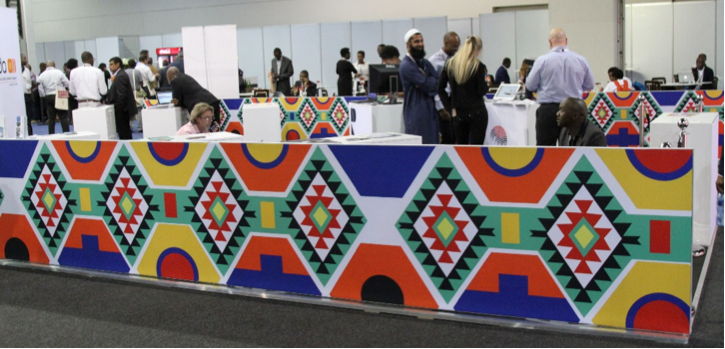Over the last few years, there has been a lot of excitement around the potential impact of digital technologies to solve challenges and create jobs in the developing world. Those championing this strategy for growth and development have turned to young entrepreneurs with wildly imaginative ideas that just might work — if only they had a little business training.
Since 2011, infoDev has been piloting entrepreneurship support programs across the globe and has helped establish a network of mLabs to support digital entrepreneurs. A 2014 assessment report, Do mLabs make a difference? found that these specialized incubators had helped develop nearly a hundred start-ups and created over 280 jobs. Our team returned to the mLabs to conduct a follow-up assessment and uncovered some interesting findings about their impact.

Participants networking at the Global Entrepreneurship Congress. © Mutoni Karasanyi / World Bank
The broader context in which the mLabs operate today has changed significantly from even just three years ago. In Africa, the tech ecosystem has exploded to include over 300 tech hubs, and local start-ups raised over $360 million in 2016.
The mLabs were among the pioneer incubation programs in the countries they served, and the recent assessment credits them with helping prove the incubation model and enabling other tech hubs through knowledge sharing. At the same time, mLabs have had to continually adapt their service offerings and business models in response to rapidly changing ecosystems. Thus, when assessing the mLabs’ impact today, we looked beyond the number of start-ups and jobs created to better understand their relationship to the ecosystems they operate in and the entrepreneurs they serve.
What does it take to create a high-tech start-up?
Surprisingly, many of the entrepreneurs surveyed attributed their success to networking, whether formally or informally, with peers and mentors. The training on technical skills and business planning are certainly valuable, but in those moments when you’re struggling with the day-to-day challenges of launching a business, it helps to turn to a fellow entrepreneur who might have faced the same issues.
Second to networking, infrastructure – office space, internet access, and computers – was also highly valued by mLab entrepreneurs. This is an important finding for tech hubs struggling to find sustainability and suggests that leasing co-working space could be a potential revenue stream.
It’s important to note that the mLabs helped start-ups progress from the early stage of customer discovery to the later growth stages. On average, mLab-supported tech start-ups achieved an 84% survival rate. The challenge remains, however: What can we do to help these companies move from start-up to scale-up?
What’s Next?
The mLabs’ business model has proven its value in developing income-generating and economically viable start-ups. In addition, there are several examples of how these businesses have improved the lives of their customers — by delivering mobile-based academic materials to over 1.7 million students, or helping hundreds of farmers boosted their income by $155 per month; other start-ups have developed platforms to solve market inefficiencies in public transportation, affordable child care, and local tourism.
The report found that mLab-supported start-ups are on average financially healthier than their peer companies. However, several of the entrepreneurs surveyed recognized that achieving long-term viability in a developing country often required them to pivot toward business-to-business or business-to-government models. To survive the start-up “valley of death,” businesses are eager to gain more access to angel investors and receive additional support to accelerate and scale.
These findings confirm the demand for the recently launched infoDev’s regional and pan-African acceleration programs. Last fall, Jambar Tech Lab and Traction Camp were launched at CTIC Dakar and mLab East Africa, respectively, to provide personalized coaching and acceleration support to growth-oriented entrepreneurs and help them bridge this critical funding gap. This summer, XL Africa is searching across the continent for the highest-potential digital start-ups; companies will receive mentoring from global and local experts, learn through a tailor-made curriculum, and get access to potential corporate partners and investors.
The Do mLabs still make a difference assessment report is part of infoDev’s continued commitment to sharing knowledge and enabling entrepreneur support programs. To strengthen these efforts, infoDev is investing in rigorous measurement and evaluation practices in order to provide even more detailed analyses and insights in the future. As the mLabs continue to evolve, data-driven insights will become critical to better serving the needs of local entrepreneurs and increasing engagement with investors and tech communities from across the globe.




Join the Conversation